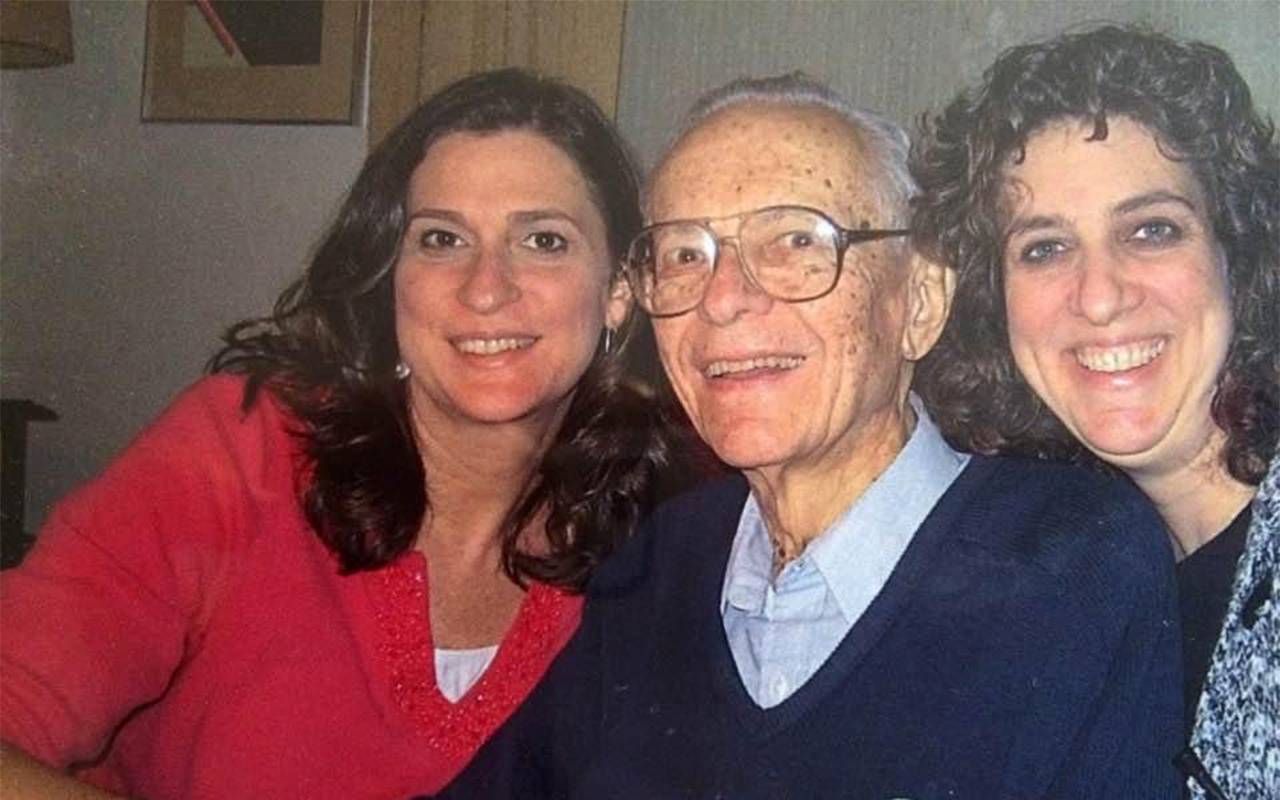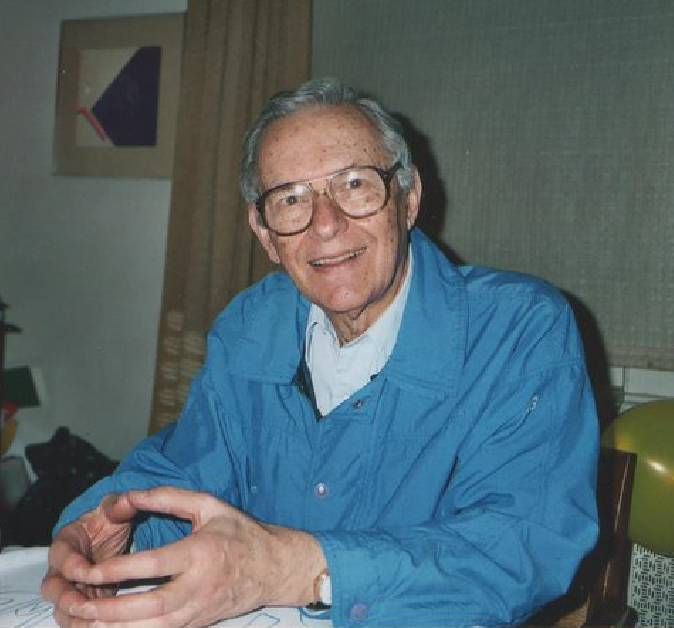Stanley the Shakespearean
A wordsmith's final words to his family were not his own, but conveyed the depth of his fatherly love for them
At his death from cancer in 2011 at age 87, Stanley Siegelman, my former boss and longtime friend, left behind a note for his two daughters. He had typed a message on his 40-year-old IBM Selectric three weeks earlier and left the plain white sheet on his desk.

The note gave specific instructions. Go to his bedroom, to the bookshelf near the bathroom, and look at the second shelf from the bottom, on the right side. "The Oxford Shakespeare" would be there. Turn to page 1,116, to Sonnet 71.
It came as no surprise to his daughters that their father communicated posthumously through a note. He preferred the written word over speaking face to face. He routinely left short notes around the house directing his family to put away shoes left lying around, get milk at the grocery store and turn off the lights after leaving the living room. Often, he signed off as "The Management."
He preferred the written word over speaking face to face.
That Siegelman pointed his daughters toward a poem was no surprise either. He wrote poetry his entire life. He won a major poetry contest in high school and later wrote romantic poems for his wife Shirley, kept for decades in a shoebox hidden in a closet.
Only much later in life, after he retired from a long career as a magazine editor and approached his seventies, would his poems again appear in print. He published those poems, composed in both English and Yiddish, regularly in the Jewish newspaper, The Forward. A lifelong calling finally answered in full.
A Lifelong Poet
Toward the end, Siegelman even wrote light verse about his impending demise. One started, "My cancer, that villain, is planning to kill/One day, in its fury, it certainly will!/Its targeted victim I happen to be/The reason's elusive — but, hey, c'est la vie!"
Among his papers later found was a poem declaiming, "When you chisel my name in the granite inviting bypassers to read, beware of the stonecutter's charges, for they all are chiselers indeed!"

"Stanley knew for many months that his condition was terminal," Forward opinion editor Daniel Tremain wrote in tribute. "He continued writing poetry even as it became difficult for him to physically press the keys on his typewriter."
Susan fetched the 1945 edition of Shakespeare. Stanley — a World War II veteran who served in the U.S. Army in France and survived five campaigns and the Battle of the Bulge — owned the book as an undergraduate at Rutgers University majoring in English.
As soon as she found the sonnet, she called her older sister Karen to let her know. She read her the poem over the phone.
"No longer mourn for me when I am dead," the sonnet begins. "Give warning to the world that I am fled ... Nay, if you read this line, remember not/The hand that writ it ... If thinking on me then should make you woe."
Overwhelmed with grief at the discovery, the sisters broke down crying.
'A Sympathy Card from the Grave'
Stanley Siegelman was no stranger to the hardships of loss, they recently explained to me. He took care of his mother as she herself died from cancer when he was only 22. His oldest brother Sam perished by grenade on the front lines in World War II, and later another brother, Alex. His wife of 47 years, Shirley, predeceased him by 10 years.
"The poem obviously had significance to him," Karen recalls today. "It was almost like a sympathy card he sent us from the grave. The gesture was made from fatherly love. I'm still in awe that he went to such lengths."
How we decide to say goodbye, if we even get to decide at all, matters to those we love who are left behind.
The note, all of 48 words long, spoke volumes about Siegelman. How fitting that his last words belonged to a poet. He let Shakespeare, writing more than 400 years ago, express with peerless eloquence the final wishes he never felt equipped to articulate in his own voice.
How we decide to say goodbye, if we even get to decide at all, matters to those we love who are left behind. And matters forever.
Siegelman died a father with no priority higher than to spare his children sadness and suffering. In so doing, he left a legacy arguably more precious than any property or insurance policy. Before he breathed his last, he issued an imperative for his children to honor a vow: that they should forgo pity and pain in the wake of his loss and gather the will to go on as before and manage to be happy.
More than 11 years later, Stanley Siegelman's daughters live by those words of farewell. As such, then, his departure qualified as pure poetry.


